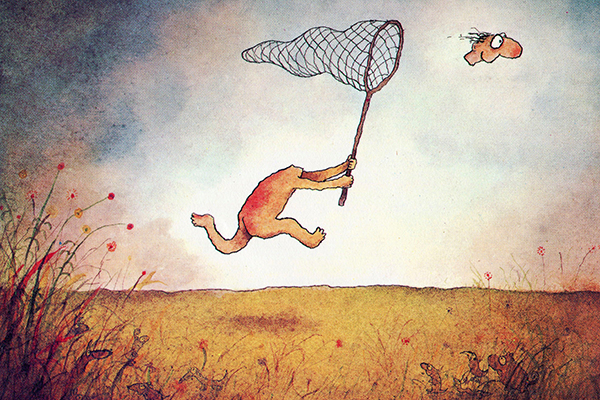A guest blog from Jonathan Draper, General Secretary, Modern Church: Proud Sponsor of Greenbelt (his words!)
Modern Church has supported Greenbelt in helping us platform two overseas speakers at this year’s festival – both of whom bring both wit and wisdom in spades: Michael Leunig and Nadia Bolz-Weber. We are also indebted to the generous support of Canterbury Press in enabling Nadia to make her welcome return to Greenbelt this summer.
Love is the centre around which the Christian faith revolves, the foundation – to change metaphors – on which the whole edifice of faith rests. If, as Michael Leunig suggests in his piece for Modern Church’s Signs of the Times, the ‘centre cannot hold’ (Yeats) then not only does the faith fall apart, society becomes dysfunctional. When the foundation crumbles, the whole thing comes crashing down.
Leunig uses the image of ‘love made fresh every day’ like bread; love made in the ordinary things of life, in ‘not-for-profit’ conversations. Love at the kitchen table. Another way of putting that might be to say that acts of love, however small, are how we embody our faith, how we give our faith flesh and blood, reality.
Embodied love is the most adequate way of describing faith. You can believe in anything – and people really do believe in anything – but if you don’t live what you believe, then it’s just words, meaningless words. Living our faith gives it meaning, it makes the words come off the page or out our heads and take flesh and become a living thing, a thing which makes a difference to us. And if what we believe is love, then our faith becomes a thing that can potentially change the world, one conversation, one act of kindness at a time.
Leunig speaks of the ‘ecosystem of love’, and the organic image is important. In the Christian story, God doesn’t impose love on the world, doesn’t force human beings to act or think in loving ways. Instead, love is an offer, an offer which gives us choices. If we accept the offer of love and let it take root in our lives, then it can grow. As it grows it becomes strong. As it becomes strong it can spread. As it spreads it can touch the lives of others with the offer of love. A small beginning can become a whole forest of love, able to withstand even the fiercest gales and most tempestuous times – a bit like the times in which we live.
I don’t want to push this analogy too far or I’ll make us sound like the Ents in The Hobbit. But there is an important link there. One thing I’ve learned over the years is that there is nothing (except, perhaps, being self-conscious) that distinguishes us – human beings – from the rest of the natural world, or even from the rest of the universe. We are stardust. The love that takes root in us does not, indeed cannot stop with other human beings (though that’s not a bad place to start…).
Even the UK Parliament has felt fit to declare a ‘climate emergency’ and only a few deluded people (for whatever reasons) disagree. The climate crisis is our fault, but we are not the only victims. We can do something about it; most of the species on earth can’t. Addressing the climate crisis is up to us – as an expression of the love which underpins everything.
The most significant result of the climate crisis so far, for humans at any rate, has been what some have called a ‘migration crisis’. There are more people on the move in our world today than there have ever been. These aren’t people who think, as I might, that I’ll move somewhere else to get a better job and earn more money. Some are people fleeing war – just think of the millions who have fled Syria. Many others are fleeing the effects of this climate crisis: fleeing lands that have turned to desert, or in danger of flooding, or where water is scarce, crops can’t be grown, where there are no future prospects. Neither crisis is going to get better unless we – as an act of embodied faith and love – act. Now.
Love at the kitchen table – love in everyday and ordinary ways – is to take a step on the journey of love; it is, as Leunig puts it, ‘the on-going work of love as our ancestors advised: the seeing, caring, knowing and listening to one another, taking each other seriously’. This love – made flesh and blood by each one of us can turn the tide of crisis, can provide hope. This is wisdom indeed.
See you at Greenbelt!
Pictured: Michael Leunig cartoon, Chasing the Head

